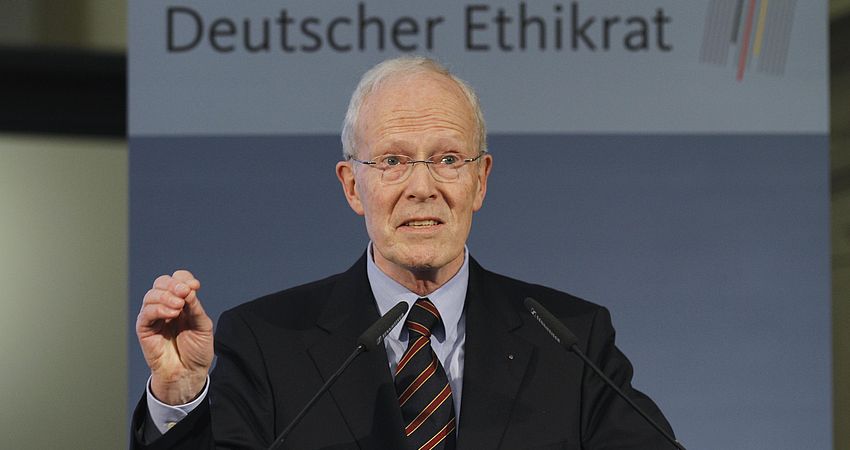Bioethics Forum
Brain Death and Organ Donation

Prof. Dr. iur. Edzard Schmidt-Jortzig · Vorsitzender des Deutschen Ethikrates, Deutscher Ethikrat, Fotograf: Reiner Zensen
Topic
Under current transplantation law, the removal of vital organs is only permitted if the organ donor has been declared dead. The proof of death depends on the state of knowledge in medical science. Only persons for whom brain death – meaning the state of irreversible loss of all brain functions – has been correctly determined are eligible as organ donors.
Not only since the publication of a white paper by the President’s Council on Bioethics in the USA in 2008 has the debate about whether brain-dead people are actually dead regained public attention. It is undisputed that brain death is accompanied by the irreversible loss of all brain functions. However, other bodily functions can be maintained due to intensive care treatment options. Anecdotal report of reactions to pain stimuli and the possibility of continuing a pregnancy raise questions as to the extent to which brain death actually marks a person’s death or whether it merely initiates an irreversible dying process.
The German Ethics Council wishes to inform the public about the current debate and enter into an interdisciplinary exchange with invited experts and the public. The aim is to examine the question what should mark an ethically appropriate and responsible way of dealing with brain-dead people, given the tension between the needs of transplantation medicine and the protection of human dignity.
The event focuses on the following aspects:
- Are there any new insights into the end of human life?
- Should the practice of organ removal be reconsidered?
- What moral obligations do we have towards brain-dead people?
